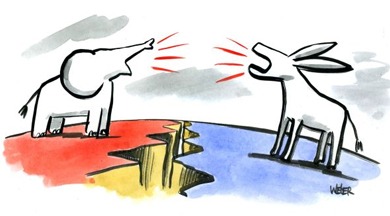Item Link: Access the Resource
Date of Publication: February 2, 2015
Year of Publication: 2015
Publisher: Nature Publishing Group
Author(s): Ana-Maria Bliuc, Craig McGarty, Emma F. Thomas, Girish Lala, Mariette Berndsen, RoseAnne Misajon
Journal: Nature Climate Change
Are there personal characteristics that can predict if a person is a climate change ‘believer’ or ‘denier’, and if so what does this mean for addressing the division between the two groups?
ABSTRACT: Of the climate science papers that take a position on the issue, 97% agree that climate change is caused by humans1, but less than half of the US population shares this belief2. This misalignment between scientific and public views has been attributed to a range of factors, including political attitudes, socio-economic status, moral values, levels of scientific understanding, and failure of scientific communication. The public is divided between climate change ‘believers’ (whose views align with those of the scientific community) and ‘sceptics’ (whose views are in disagreement with those of the scientific community). We propose that this division is best explained as a socio-political conflict between these opposing groups. Here we demonstrate that US believers and sceptics have distinct social identities, beliefs and emotional reactions that systematically predict their support for action to advance their respective positions. The key implication is that the divisions between sceptics and believers are unlikely to be overcome solely through communication and education strategies, and that interventions that increase angry opposition to action on climate change are especially problematic. Thus, strategies for building support for mitigation policies should go beyond attempts to improve the public’s understanding of science, to include approaches that transform intergroup relations.
The views and opinions expressed through the MAHB Website are those of the contributing authors and do not necessarily reflect an official position of the MAHB. The MAHB aims to share a range of perspectives and welcomes the discussions that they prompt.
